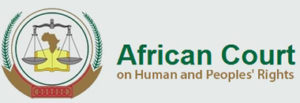African Court begins 60th Ordinary session
 The African Court on Human and Peoples’ Rights has started the 60th Ordinary Session which will stretch up to February 26, 2021 with delivery of at least five Judgments.
The African Court on Human and Peoples’ Rights has started the 60th Ordinary Session which will stretch up to February 26, 2021 with delivery of at least five Judgments.
Justice Sylvan Ore, President of the African Court, told the Ghana News Agency in an interview that, the Judgments will be live streamed via https://www.youtube.com/user/africancourt.
He explained that all the eleven Judges of the African Court would be involved in the four weeks, session.
Justice Ore explained that the African Continental Court based in Arusha, Tanzania meets four times a year in Ordinary Sessions and may hold Extra-Ordinary Sessions.
He recounted that African Court was established by African countries to ensure the protection of human and peoples’ rights in Africa. It complements and reinforces the functions of the African Commission on Human and Peoples’ Rights.
The African Court was established by pursuant to Article 1 of the Protocol to the African Charter on Human and Peoples’ Rights on the Establishment of an African Court which was adopted by Member States of the then Organization of African Unity (OAU) in Ouagadougou, Burkina Faso, in June 1998.
The Protocol came into force on January 25, 2004.
He commended the 31 States which have ratified the Protocol including Ghana, Algeria, Benin, Burkina Faso, Burundi, Cameroon, Chad, Côte d’Ivoire, Comoros, Congo, Democratic Republic of Congo, Gabon, and The Gambia.
The rest are: Kenya, Libya, Lesotho, Mali, Malawi, Mozambique, Mauritania, Mauritius, Nigeria, Niger, Rwanda, Sahrawi Arab Democratic Republic, South Africa, Senegal, Tanzania, Togo, Tunisia and Uganda.
Justice Ore expressed concern that as of December 2020, only six out of the 31 State Parties to the Protocol have deposited the declaration recognizing the competence of the African Court to receive cases directly from Non-governmental and individuals.
The six States are: Ghana, Burkina Faso, The Gambia, Mali, Malawi and Tunisia.
On the jurisdiction of the African Court, Justice Ore explained that its Contentious Jurisdiction applies to all cases and disputes submitted to it in respect of the interpretation and application of the African Charter on Human and Peoples’ Rights, (the Charter), the Protocol and any other relevant human rights instrument ratified by the States concerned.
“For its Advisory Jurisdiction, the African Court may, at the request of a Member State of the African Union (AU), the AU, any of its organs or any African organisation recognised by the AU, give an opinion on any other legal matter relating to the Charter or any other relevant human rights instruments, provided that the subject matter of the opinion is not related to a matter being examined by the Commission,” he said.
Source: GNA
